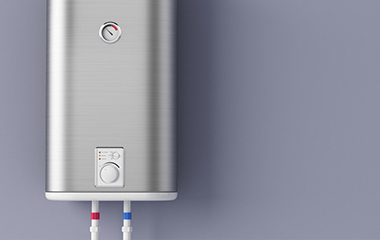With household purses already stretched to the limit this winter, the added cost of boiler breakdown cover can seem like an unnecessary expense
But failing to take out cover could prove a costly mistake. Research from the consumer organisation Which? found that nearly one in three of all new boilers will break down within their first six years of operation, with repair costs often running into hundreds of pounds.
Unfortunately it is this time of year that household emergencies are most likely to happen, resulting not only in costly repairs but also the stress of trying to find a reliable tradesperson at short notice.
So if the idea of waking up to a freezing house and stepping into an ice cold shower fills you with dread, now is the time to make sure you have adequate cover in place. Winter-proofing your property can help you avoid mishaps like these too.

What are the options?
Policies for home emergency cover are many and varied meaning that there is an option to suit every budget.
The cheapest and most basic policy to go for is stand-alone boiler breakdown cover. If you want to go for something that is more comprehensive then you may want to consider a broader home emergency policy which will also cover drainage, power supply failure and burst pipes.
Think about exactly what it is that you need – you don’t want to be paying over the odds for cover that you don’t require but similarly, cheapest isn’t always best. Paying slightly more now could save you a huge amount in the long run.
Who offers home emergency cover?
You don’t have to sign up for heating cover with your gas supplier, so you can choose the most appropriate cover from any provider to suit your needs.
British Gas is probably most well known for offering home emergency cover but it’s not the only provider. Many of the major insurers and some standalone providers offer insurance policies that give protection from the unexpected crises that can happen in the home.
However, levels of cover and prices vary considerably so it is worth shopping around to make sure that you get the best deal.
Basic boiler cover policies are the cheapest option and will protect your boiler and its controls. This level of cover also usually includes an annual boiler service.
Prices generally start from about £6-£10 a month and the better policies will protect your boiler and controls and entitle you to unlimited call outs, an annual service of your boiler and its replacement if it is less then seven years old and beyond repair.
If you want something more comprehensive you could opt for boiler and central heating cover. Policies for this kind of cover tend to start from about £20 a month.
With the AA, for example, boiler and central heating cover costs from £19.49 and will protect your boiler, central heating, pipes and radiators.
You get unlimited call outs, cover for heating faults, an annual service and up to £500 towards a new boiler if it cannot be fixed and is less than seven years old.
If you want complete protection from a number of potential home emergencies then it may be better to opt for a complete Home Emergency cover package.
This again can be picked up for as little as around £20 a month and as a general rule will include cover for plumbing and drainage, electric supply, cooking system, security, main heating system, water supply pipe, gas supply, roofing, pest infestation and an annual boiler service. All of these are potential issues that may occur in the event of a boiler breakdown, and if you’re trying to sell your home this winter, that’s a whole host of extra hassle you’ll want to avoid.
What to watch out for.
As with all insurance policies, it is vital to read the small print to check that you really are getting what you think you are.
Many policies will limit the amounts of claims you can make per year or will only cover costs up to a certain amount.
Always check if there is an excess level to pay and be aware of a no-claims period which normally lasts 30 days from the day the policy is taken out.
Be aware that if your boiler is past a certain age (normally 15 years) it may not be covered. This is simply because it won’t meet standards requested by many insurers and some will insist on a boiler inspection before offering cover.
Do I really need cover?
It is only homeowners who need to consider getting boiler breakdown cover. If you are renting, then your boiler is the responsibility of your landlord.
It is also worth checking your home insurance policy as boiler cover may be included in your buildings and contents insurance. However, the level of cover offered is likely to be relatively low, so ensure it gives you enough protection.
Also, if your boiler is relatively new, it is likely to be covered under the manufacturer’s warranty, so taking out additional insurance is unnecessary.
By Clare Walsh, financial journalist at moneysupermarket.com